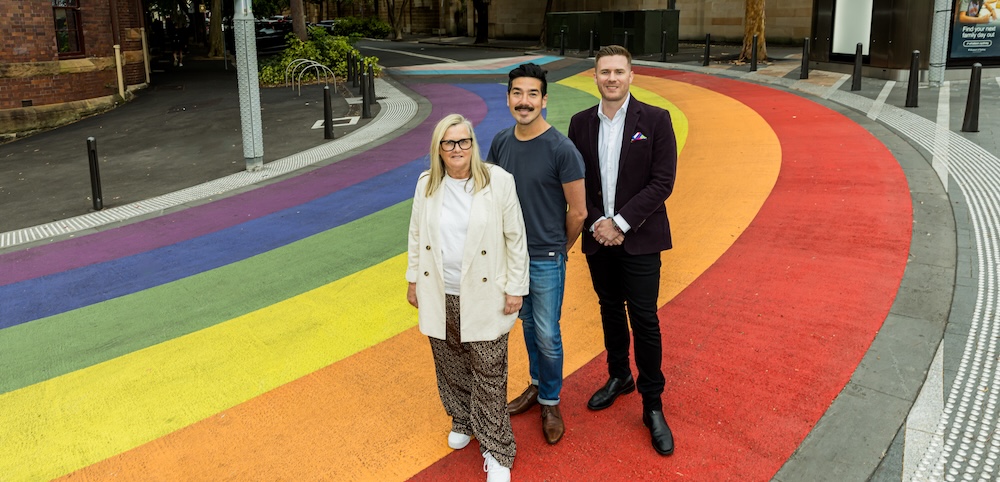
Keeping our eye on the ball
Australia has had an international reputation for efficiently and effectively handling HIV/AIDS. But is that reputation in danger? The fourth International AIDS Society (IAS) conference on HIV Pathogenesis, Treatment and Prevention is being held in Sydney from July 22-25 – the largest HIV-AIDS conference ever in the Asia/Pacific region. IAS 2007 features reports on the latest developments in basic, clinical and prevention science and will examine how scientific advances can, in very practical ways, inform the global response to HIV/AIDS. One facet of the conference is examining how Australia’s response to HIV has been so effective compared to other regions in the developed world. However, Associate Professor John Imrie from the National Centre in HIV Social Research warns Australia’s success on HIV prevention is precious and could be reversed if we take our eye off the ball.
Ron Hughes: What do you hope the conference will achieve?
Associate Professor John Imrie: The conference has a real focus on pathogenesis and prevention. There have been tremendous advances in treatment and care of people living with HIV. They’ve had some really big programs to try and roll out making treatments available widely around the world and particularly some of the developing countries. I think one of the aims of this meeting will be to look at some of the innovations in the kinds of medication available and how effective they are. Particularly for people who have resistant virus, for people who are having difficulties with adherence and things like that.
The second focus of the meeting is really going to be around prevention. This has been a very exciting year for prevention scientists. There have been two large studies that stopped enrolling people. They were looking at the effectiveness of circumcision as a prevention intervention and that was stopped because it was shown that circumcision was very effective in reducing female to male transmission. At the same time, we’ve had two big trials in different places of the same microbicide compound that – because in one setting there was some suggestion of harm – they were required to stop. I think it’s a pretty exciting time, there are a lot of new things in the pipeline, a lot of them are still being evaluated and there’s an awful lot of discussion to have about those and where do we go with them?
RH: It is sometimes grumbled in the LGBT community that HIV education is under-resourced because it’s seen it as a relatively minor problem in terms of the number of new infections. The fear is the problem will grow if we under-resource now and the bill will get a lot higher.
JI: That’s very much part of the purpose of the session we’re holding on the Sunday evening Doing It Down Under Australia’s response to HIV has been hugely effective and we mustn’t lose sight of that. HIV infections in Australia are really small, very small numbers relative to other industrialised countries but also particularly to sub-Saharan Africa and some parts of Asia.
There may be some issues around resources, but HIV response in Australia has been remarkably good and it has been sustained. Maybe we’re at a time where we need a small injection of additional resources to try and tackle these problems. I mean, any increase [in infection] is undesirable, but current increases are relatively small. I would argue that if we look at it on a national level it’s more kind of, taking our eye off the ball for a minute. However, the point I’m trying to make is what we’ve achieved and what’s being achieved is very precious and fragile – and we have to be very vigilant about trying to maintain that!
We can’t be complacent about any of this. Some states have a very good track record and some are seeing maybe a blip in the works. I don’t think we should throw up our hands in horror. I don’t think we should necessarily be pointing any fingers of blame, we just need to say it’s a work in progress, an on-going project, and we have to keep our eye on the ball all the time. We have to stay on the messages, we have to continue to engage with people where they are.
We mentioned complacency: I don’t think gay men in Australia are complacent at all. Some of the real prevention successes in Australia are due to the fact that we’ve gone and met the people who are at risk where they are, we haven’t asked them to come to prevention, we’ve taken prevention to them. Those are the kind of things we have to focus on and highlight as the things that are real successes.
RH: India recently downgraded its HIV estimate from 5 million to 2.5 million HIV+ people. Are we dealing with guesswork when it comes to the global effects of HIV?
JI: One of the problems is, when you’re looking at countries that don’t have sophisticated surveillance systems, it’s guesswork. That’s one of the things in Australia we can be really proud of. We have an excellent system of disease surveillance and behavioural surveillance, so we know a lot about people’s practices. And also the nuts and bolts about things like when people are likely to forego condoms, in what sort of situations, and we can feed that kind of information directly into programs. They just don’t have that level of information and detailed knowledge in a lot of places.
RH: Can our brand of prevention and education work in other countries?
JI: The kind of models we’ve used in Australia and that have been very successful are models of partnership: affected communities, people living with HIV, the voluntary sector, government and researchers all sit down together as equal partners round tables, making policy decisions and implementing programs. Those are not automatically graft-able onto other settings. But the processes that they embrace are. What I mean is, all the various interested stakeholders being able to sit down as equals round the table with a voice that is heard, each voice counting the same. Those kinds of things are readily transferable. Things we have done in terms of raising awareness in the population about things like stigma, discrimination, homophobia, things like that: those sorts of things are readily transferable. I think those are the areas we need to focus on. We can’t say: look, just do it this way and it’ll work, because it may not work.
RH: Well, yes, cultural differences-¦
JI: Absolutely. But there are things and processes that we’ve put in place, and the way we’ve managed things in Australia that, really, it’s worth giving them a try. We cannot give up on prevention. We’ve only just begun and we’re finally finding ourselves in a place where we have more and more things in our toolbox of what we can do to try and prevent the further spread of HIV.
From Adelaide’s Blaze Media.









